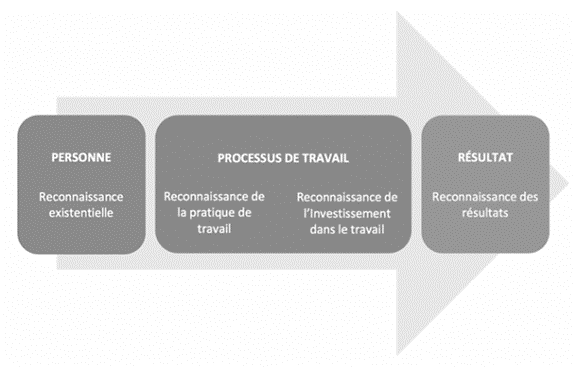In May, I encouraged you to think about the future in the article “Et si l’on se projetait dans le futur?” (available in French only), which featured insights from the experts at Humance. In these early days of 2021, I would like to offer more food for thought by presenting eight promising drivers that managers can leverage during the global pandemic. These drivers were developed from answers given by managers in interviews about their experience and from research by our experts. Do you want to have more impact as a manager in the current situation? Try the following eight drivers for performance and success.
1. Operational support
Your first concern should be that your resources have the tools and the environment they need to perform their duties effectively (computer, monitors, speakers, work desk and chair, a closed room, etc.). They also need a way to communicate quickly and easily with their manager, colleagues, and the team. This is fundamental.
2. Meaning
Understanding why we are doing a job or a task is more important than ever. When health and safety are at stake, it is essential to find the meaning behind our motivation to dive into our day: it’s what mobilizes us. Let’s take health care as an example. Despite the personal risks, nurses go to work every day because they know they are helping fight a widespread virus. So, it is important to understand the purpose of our tasks, because they play a role in a whole that is bigger than just us.
3. Consultation and empowerment
I also encourage you to embrace the power of consulting your employees about their responsibilities. As a manager, asking questions to get your resources’ perspective and involving them early on in assignments commensurate with their skills will prompt them to take action. You avoid leaving your subordinates in wait-and-see mode or in the position of victim. Don’t forget that managers around the world are also learning to manage against the backdrop of a pandemic. As a result, it is a good idea to consult in order to perform, check on your resources’ needs, and get a clear picture of the current situation.
4. The right to make mistakes
Are you familiar with the idea of forgiving in advance? Forgiving in advance means giving yourself permission to make mistakes. No one – and I mean no one – has ever gone through what we are going through. We need to accept imperfection! When you are managing a virtual team for the first time, or when you work from home with children attending school remotely, you need to be able to forgive yourself in advance. I’m not saying you should stop to be held accountable for your work or that you should procrastinate daily, but you should give yourself the right to a second chance. Don’t aim for perfection at all costs; aim for continuous improvement instead. During the pandemic, we are all learning together and developing as we go.
5. Proximity
Not being able to connect with people since March 2020 tends to be what stands out as most difficult for remote workers. We need to create proximity, even if only virtually. Scheduling frequent short talks rather than widely spaced, long meetings, being available, and offering informal interaction are all practices that you should be making part of your day as a manager. Is your employee taking care of a sick child at home while working remotely? Does your colleague live alone and are they finding it increasingly difficult to cope? Is your assistant dealing with a parent in distress? Check in regularly about what’s going on in your employees’ personal ecosystems. And don’t forget to do it for yourself! You are the most important thing you bring to your job: create your own network of support and proximity.
6. Listening
Recently, a seasoned manager shared with me how he practises listening. “One size does not fit all. Taking time to understand an employee’s situation and listening to their needs always leads to a new dimension. It’s more complex than it seems: every employee has a unique situation, different needs, and specific objectives.” In short, the greatest challenge when it comes to management is that it is always a tailored effort, since every employee is different and has their own unique ecosystem. To help you listen, try to remember the following acrostic:
- L = listen actively (listen to verbal and non-verbal communication, what is said and not said!)
- I = gain insight into the other (show empathy and kindness)
- S = seek information (by asking open questions and letting the other person talk)
- T = have the right tools (make sure you have chosen the right means of communication)
- E = take the time needed to truly engage (limit interruptions, be in the present moment)
- N = note what's been said and follow up (take the time to circle back with the person later)
7. Recognition
In September 2019, I wrote an article (available in French only) about recognition for Facteur H that resonated with a lot of people. I addressed studies by Brun & Dugas (2002) that are still relevant almost 20 years later: there is nothing like recognition to mobilize troops and motivate people. You don’t need to be a manager to offer recognition: a colleague, client, friend, or partner can provide recognition too! Try recognizing those around you: you’ll be surprised at the results and trust it generates!

Reference
Brun, J.P., Lamontagne, S., Blais, C., Pageot, N., Mérineau, D. and Lépine, P. (2005). Coffret: La reconnaissance au travail. Québec, Québec: Chaire en gestion de la santé et de la sécurité du travail.
8. The informal and the social
Authors and experts talk about the importance of checking in or having conversations around the virtual water cooler. Employees need to recreate informal and social relationships. We have seen original virtual after-work get-togethers and remote office parties in many organizations. Starting meetings with small talk and allowing for an informal network outside of professional meetings to develop is a good practice to generate communication in the organization. Internal professional social networks and sharing/discussion groups are creative ideas we have seen pop up at certain client organizations.
What are your promising drivers you can leverage? If you believe introducing one or more of these eight drivers may be essential to your organization, we encourage you to contact us. It will be a privilege to assist you in developing your competencies in this unique managerial context.


